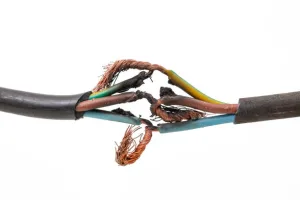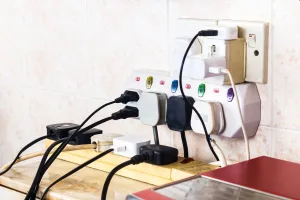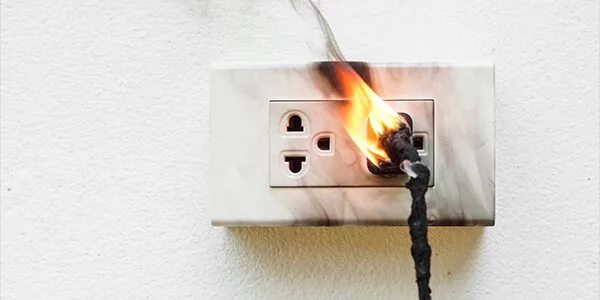Learn about the most common electrical problems in residential buildings in Kenya, their causes, and how to address them effectively to ensure safety and efficiency in your home.
Introduction
Electrical problems are a significant concern for many residential buildings in Kenya. From power outages to wiring issues, these challenges can disrupt daily life, pose safety risks, and lead to expensive repairs if not addressed promptly. This article will explore the common electrical problems faced by residents, their underlying causes, and practical solutions.
Understanding Electrical Systems in Kenyan Residential Buildings
Kenyan homes typically rely on a single-phase or three-phase electrical system supplied by the Kenya Power and Lighting Company (KPLC). Despite advancements in energy infrastructure, challenges such as inconsistent power supply, outdated wiring, and poor maintenance practices often lead to electrical issues. Awareness of these problems is essential for homeowners, landlords, and tenants alike.
Common Electrical Problems in Residential Buildings in Kenya
1. Frequent Power Outages
Power outages, locally referred to as “blackouts,” are one of the most common issues in Kenya.

- Causes:
- Load shedding by KPLC due to insufficient power generation.
- Damaged transformers or power lines, often caused by extreme weather or vandalism.
- Overloaded electrical grids.
- Solutions:
Investing in alternative power sources such as generators, solar panels, or uninterruptible power supply (UPS) systems can help mitigate the impact of outages.
2. Faulty or Poor Wiring
Substandard wiring is a frequent issue in older buildings or poorly constructed homes.

- Causes:
- Use of low-quality materials during installation.
- Amateur electricians or unlicensed contractors performing installations.
- Wear and tear over time.
- Risks:
- Increased likelihood of electrical fires.
- Appliances getting damaged.
- Electric shocks.
- Solutions:
Regular inspections by licensed electricians and upgrading to high-quality wiring materials can help address these issues.
3. Circuit Overloads
Overloading occurs when too many devices draw power from the same circuit.

- Causes:
- Excessive use of high-powered appliances simultaneously.
- Insufficient circuit capacity to handle modern household demands.
- Symptoms:
- Frequent tripping of circuit breakers.
- Flickering lights.
- Solutions:
- Installing additional circuits for heavy-duty appliances like refrigerators, air conditioners, and water heaters.
- Educating residents on proper usage of electrical outlets.
4. Frequent Tripping of Circuit Breakers
While circuit breakers are designed to protect homes, frequent tripping can be a sign of deeper issues.
- Causes:
- Faulty wiring or appliances.
- Overloaded circuits.
- Ground faults or short circuits.
- Solutions:
- Consult an electrician to identify and resolve the root cause.
- Replace old or damaged circuit breakers with modern, more reliable options.
5. Voltage Fluctuations
Unstable voltage levels can harm electrical appliances and lead to increased energy costs.
- Causes:
- Inconsistent power supply from the grid.
- Overloaded transformers or aging infrastructure.
- Poor-quality electrical connections within the building.
- Solutions:
- Installing voltage stabilizers to regulate power supply.
- Engaging professionals to repair or upgrade electrical connections.
6. Defective Electrical Outlets
Malfunctioning or sparking outlets are another common issue.
- Causes:
- Loose wiring connections.
- Damage from moisture or physical wear.
- Use of counterfeit electrical components.
- Risks:
- Electric shocks or burns.
- Increased fire hazards.
- Solutions:
Replace damaged outlets promptly and ensure proper earthing in the electrical system.
7. Lack of Proper Grounding
Grounding ensures excess electricity is safely diverted into the earth, protecting residents and appliances.
- Causes:
- Poor installation practices.
- Corrosion of grounding rods.
- Outdated or absent grounding systems in older buildings.
- Risks:
- Electric shocks.
- Increased risk of damage during power surges.
- Solutions:
- Conduct a thorough inspection and update the grounding system as necessary.
Importance of Preventive Maintenance
Regular maintenance can prevent many electrical problems before they escalate. Homeowners and tenants should:
- Schedule periodic electrical inspections with licensed electricians.
- Use surge protectors for valuable electronics.
- Avoid overloading power strips and outlets.
Legal Requirements for Electrical Installations in Kenya
The Kenya Energy Regulatory Commission (ERC) mandates compliance with safety standards for electrical installations. Homeowners must ensure:
- Engagement of certified electricians for installations and repairs.
- Use of Kenya Bureau of Standards (KEBS)-approved electrical products.
- Adherence to local building codes to minimize risks.
FAQs on Common Electrical Problems in Residential Buildings in Kenya
1. What are the most common signs of electrical problems in a home?
Signs include frequent power outages, flickering lights, sparking outlets, and warm or discolored wall sockets.
2. Can I fix electrical problems on my own?
No, it’s safer to hire a licensed electrician to handle electrical issues, as DIY fixes can be dangerous and illegal.
3. How often should I inspect my home’s electrical system?
An inspection every 3–5 years is recommended for most homes. Older buildings may require more frequent checks.
4. What are the risks of ignoring electrical problems?
Ignoring issues can lead to electrical fires, appliance damage, electric shocks, and higher energy bills.
5. How can I choose a qualified electrician in Kenya?
Look for electricians registered with the Energy and Petroleum Regulatory Authority (EPRA) and verify their experience and certifications.
Related: 5 Practical Tips to Hire the Best Electrician in Nairobi
Final Thoughts on Common Electrical Problems in Residential Buildings in Kenya
Electrical problems in residential buildings in Kenya are common but manageable with proper awareness and timely action. From frequent power outages to faulty wiring, addressing these issues requires the expertise of licensed professionals and adherence to safety standards. By investing in quality materials, regular maintenance, and alternative energy solutions, homeowners can ensure a safer and more efficient living environment.
Pros and Cons
| Pros of Proper Electrical Maintenance | Cons of Ignoring Electrical Problems |
|---|---|
| Enhanced safety for residents | Risk of electrical fires |
| Longer lifespan for appliances | Frequent breakdowns of appliances |
| Reduced energy costs | Increased energy bills |





